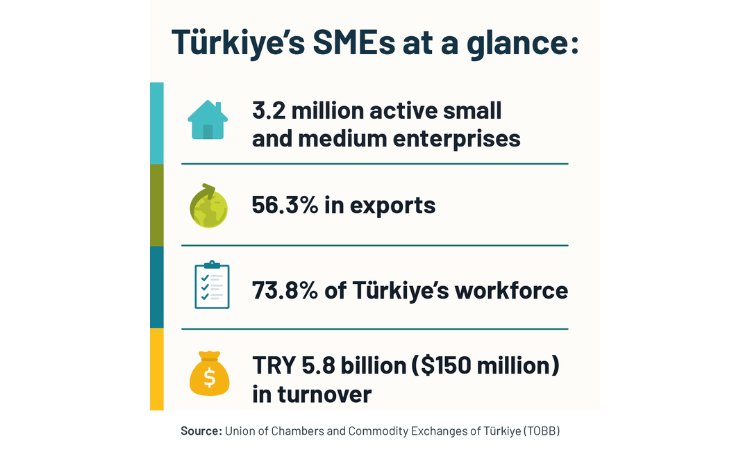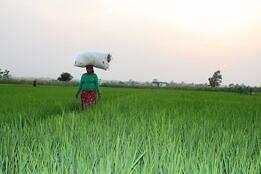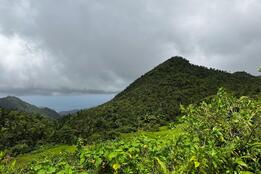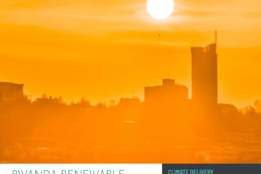The city of Istanbul prides itself on being a gateway to the world, straddling two continents, Asia and Europe. With its storied past, stunning architecture, and multicultural influences, the city’s unique position along the Bosphorus River not only offers breathtaking views but also presents significant opportunities for clean power generation. In fact, most of Türkiye is endowed with an abundance of sunlight, wind, and water — positioning it well to harness its natural resources to boost its energy potential.

Since 2009, the Government of Türkiye has partnered with CIF and its multilateral development bank (MDB) implementing partners, the European Bank for Reconstruction and Development (EBRD), International Finance Corporation (IFC), and the World Bank. The aim: to increase its clean power generation, expand energy efficiency technologies and, ultimately, transform its energy systems and increase the country’s energy security.
The government’s $315 million Investment Plan – endorsed in 2009 and revised in 2012 – was one of the first to be approved under CIF’s Clean Technology Fund (CTF), and has realized $7 billion in co-financing. By the end of the plan Türkiye’s total portfolio – with co-financing included – amounted to about $9.8 billion. As the end of investment plan or close out process* demonstrates, Türkiye has propelled an energy systems transformation. Stephan Garnier, World Bank Infrastructure Lead in Türkiye, notes that a key achievement for the government is that CTF created and developed a market for new energy technologies, laying the foundation for its longer-term energy objectives.
Strengthening the Economic Backbone: Türkiye’s SMEs
To advance the country’s energy efficiency goals, Türkiye deliberately focused on small and medium enterprises (SMEs) that makes up the bulk of the Turkish economy. Private sector focused projects financed by EBRD and IFC provided technical assistance for financial institutions willing to lend to SME’s looking to modernize their energy sources. The government also highlighted the cost saving advantages of moving to clean power.
SMEs are the bedrock of the Turkish economy: with 3.2 million active enterprises, about 99.8% of all registered businesses in the country, SMEs account for 56.3% of the country’s exports and 73.8% of its workforce, according to the Union of Chambers and Commodity Exchanges of Türkiye (TOBB).

Martin Dasek, IFC Senior Industry Specialist, noted that, because SMEs are so crucial to the Turkish economy, it was important to socialize new energy technologies among these companies and help them understand how energy efficiency measures could improve their balance sheets.
One project exemplifies how and why the Turkish government’s prioritized SMEs to create the sea change in the understanding and uptake of new energy sources. The Türkiye Sustainable Energy Finance Facility (TurSEFF) was launched in 2010 by the EBRD and a $42.4 million CTF investment.
Koray Goytan, EBRD Team Leader for the TurSEFF project, calls the results “transformative” because of the project’s outcomes and how it expanded the Turkish energy market. TurSEFF's impact includes:
- Catalyzing the uptake of clean power generation and establishing a thriving energy market that may not have existed otherwise,
- Highlighting the advantages of clean power generation, thus building demand among SMEs, and
- Lowering risk so lenders and banks could lend to SMEs wanting to make the clean energy shift.
Generating 277 MW in geothermal capacity
Türkiye is also gearing up to be a global leader in geothermal energy generation. It is currently ranked as the fourth largest producer globally, according to a Stanford University study. CTF provided $40 million to support the Geothermal Sector Development Project which subsequently led to 277.5 MW in geothermal capacity and 859,067 tCO2 in annual GHG emissions reductions. As explains Özlem Cinemre, Executive Vice President at the Development and Investment Bank of Türkiye explains, CTF was crucial to lowering the risk for developers in the geothermal sector.
A multipronged approach to energy transformation
These examples illustrate the multi-pronged solutions CTF funding can provide, from building awareness and creating demand among market actors such as SMEs, to coupling innovative financial mechanisms, such as TurSEFF. These have had multiplier effects that continue to contribute to Türkiye’s energy transformation.
* Earlier this year, CIF, in partnership with the Government of Türkiye, EBRD, IFC and the World Bank, conducted CTF’s first end-of-investment plan or “close out” process at a 2-day workshop in Istanbul, from January 28-30, 2025. The workshop brought together key government ministries and various stakeholders from national banks, beneficiary institutions, and civil society groups to look back at total investments and take stock of the results the investment plan delivered.




